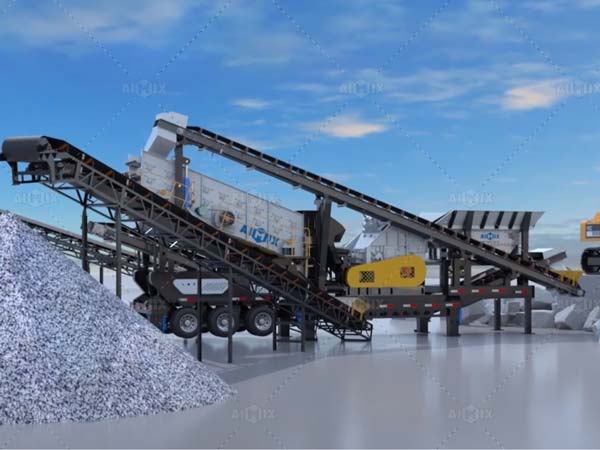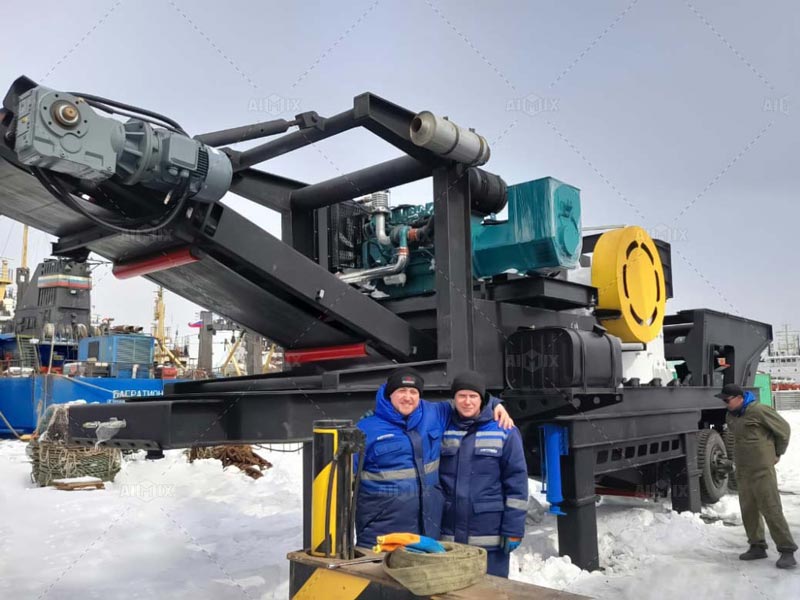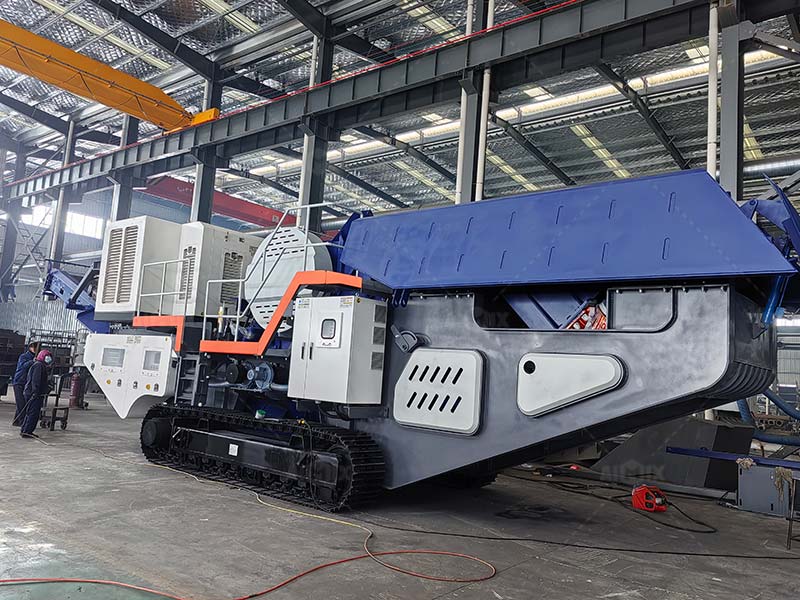In the contemporary world, waste management is undergoing a paradigm shift, necessitating innovative and adaptable solutions. Mobile crusher plants emerge as pivotal components in this dynamic landscape, offering versatile and efficient recycling capabilities. These mobile units provide an indispensable advantage in handling diverse and evolving waste streams, promoting environmental sustainability and operational efficiency. As waste streams diversify, the adaptability of mobile crusher plants becomes crucial in addressing the complexities of modern waste management. This article delves into the critical aspects of mobile crusher plants, exploring their technological advancements, operational flexibility, and their role in sustainable waste management.

Technological Advancements in Mobile Crusher Plants
State-of-the-Art Crushing Mechanisms
Mobile crusher plants incorporate cutting-edge crushing mechanisms that enable them to process a variety of materials with precision and efficiency. These mechanisms are designed to handle a broad spectrum of waste materials, from construction debris to industrial by-products. Advanced crushers utilize technologies such as portable jaw crusher, impact crusher, and cone crusher, each suited for specific types of materials. The integration of automated systems and sensors further enhances the operational capabilities, allowing for real-time monitoring and adjustments. This technological sophistication ensures that the crushing process is both efficient and adaptable to different waste streams, minimizing downtime and maximizing throughput.
Enhanced Mobility and Deployment
The mobility of these crusher plants is a significant technological advancement, enabling rapid deployment and repositioning. Equipped with robust tracks or wheels, mobile crushers can be easily transported to various sites, reducing the need for extensive logistical planning. This mobility is particularly advantageous in scenarios where waste generation sites are dispersed or in remote locations. The ability to quickly set up and commence operations enhances the responsiveness to emerging waste management needs. Additionally, mobile crusher plants often feature modular designs, allowing for quick assembly and disassembly, further streamlining the deployment process.

Operational Flexibility and Efficiency
Adapting to Diverse Waste Streams
The primary advantage of mobile crusher plants lies in their ability to adapt to diverse waste streams. As waste composition varies across different industries and regions, these plants offer the flexibility needed to efficiently process mixed waste. For instance, construction and demolition waste can include concrete, asphalt, wood, and metals, each requiring specific crushing techniques. Mobile crushers can be configured to handle these varied materials, ensuring effective size reduction and separation. This adaptability not only improves recycling rates but also reduces the environmental impact of waste disposal.
Scalability and Customization
Mobile crusher plants are designed with scalability and customization in mind, catering to the specific needs of different projects. Operators can select from a range of crusher types and configurations based on the volume and nature of the waste. This scalability allows for efficient handling of both small-scale and large-scale waste management operations. Moreover, the customizable features enable operators to adjust the crusher settings, screen sizes, and conveyor systems to optimize the processing of particular waste streams. This level of customization ensures that mobile crusher plants can deliver consistent performance regardless of the project size or complexity.
Role in Sustainable Waste Management
Minimizing Environmental Impact
Mobile crusher plants play a crucial role in minimizing the environmental impact of waste management. By enabling on-site crushing and processing, these units significantly reduce the need for transportation of waste materials to centralized recycling facilities. This reduction in transportation not only lowers greenhouse gas emissions but also decreases fuel consumption and operational costs. Furthermore, mobile crushers contribute to the conservation of natural resources by facilitating the recycling and reuse of materials that would otherwise be disposed of in landfills. This closed-loop approach aligns with the principles of sustainable development, promoting resource efficiency and environmental stewardship. You can use AIMIX crusher plant can reduce environmental impact.
Supporting Circular Economy Initiatives
In the context of a circular economy, mobile crusher plants support initiatives aimed at extending the lifecycle of materials. By converting waste into valuable resources, these plants enable the production of secondary raw materials that can be reintroduced into the manufacturing process. This contributes to reducing the reliance on virgin materials and promotes a more sustainable production model. Additionally, mobile crushers can be deployed in various industries, including construction, mining, and manufacturing, to process waste generated during production and end-of-life phases. This versatility underscores the role of mobile crusher plants as essential components in the transition towards a circular economy, where waste is minimized, and resources are continuously reused.
The integration of mobile crusher plants into modern waste management strategies reflects a commitment to technological innovation, operational efficiency, and environmental sustainability. As waste streams continue to evolve, the adaptability and versatility of these mobile units will remain critical in addressing the complexities of waste processing. Through their advanced crushing mechanisms, enhanced mobility, and customizable features, mobile crusher plants offer a robust solution for efficient and sustainable waste management, paving the way for a greener future.

